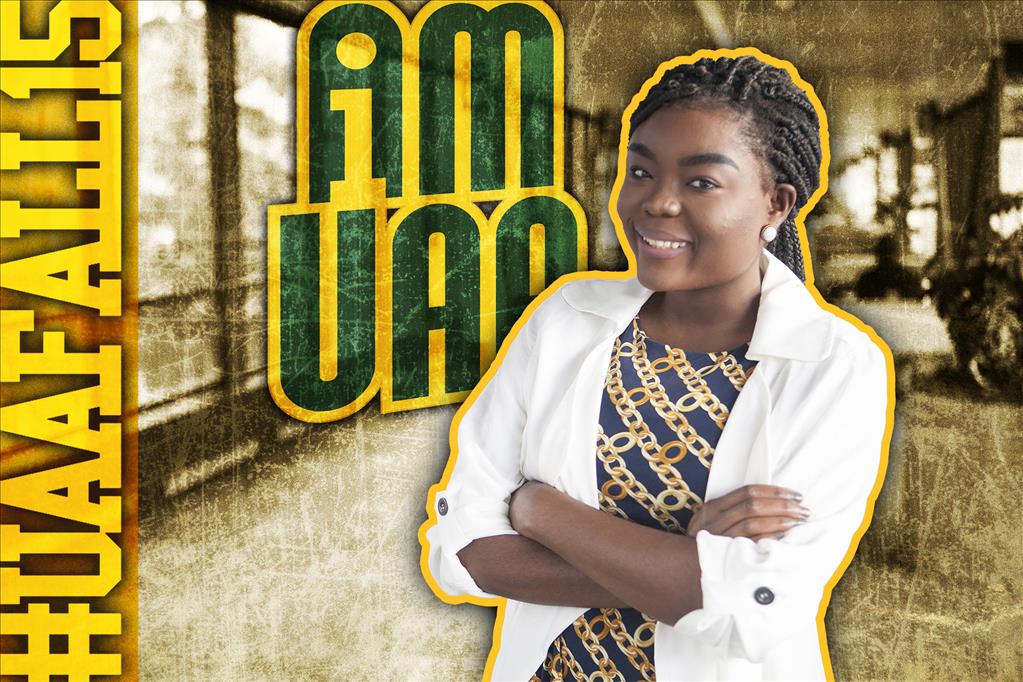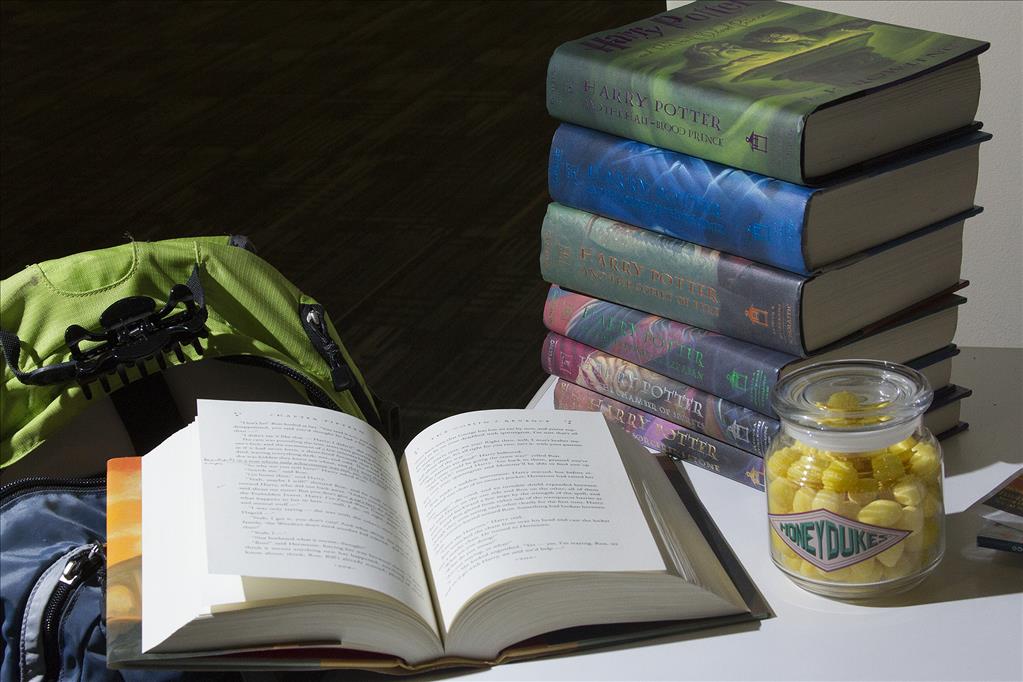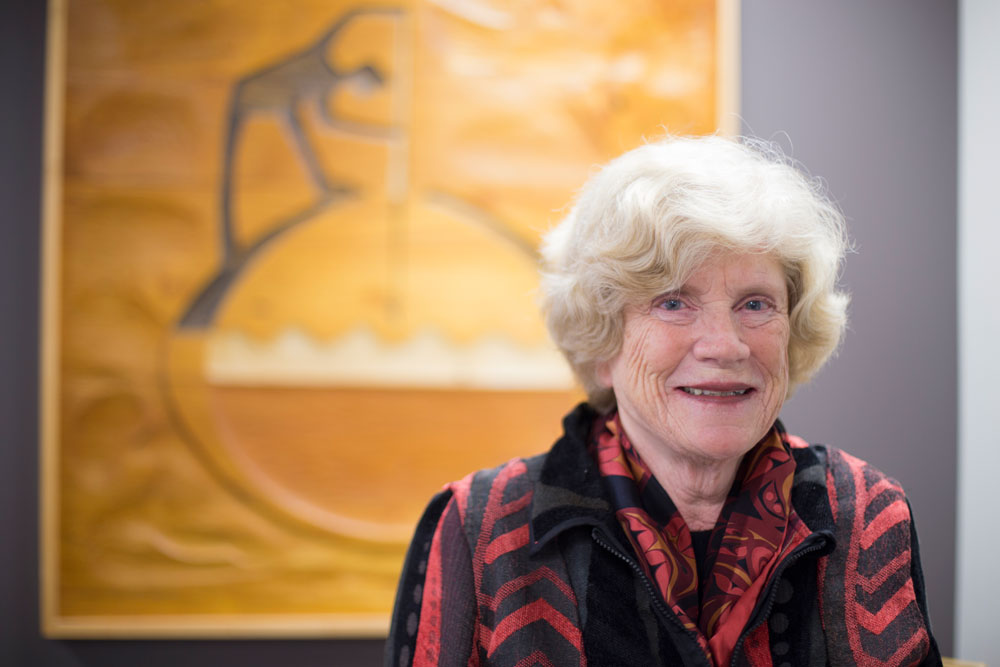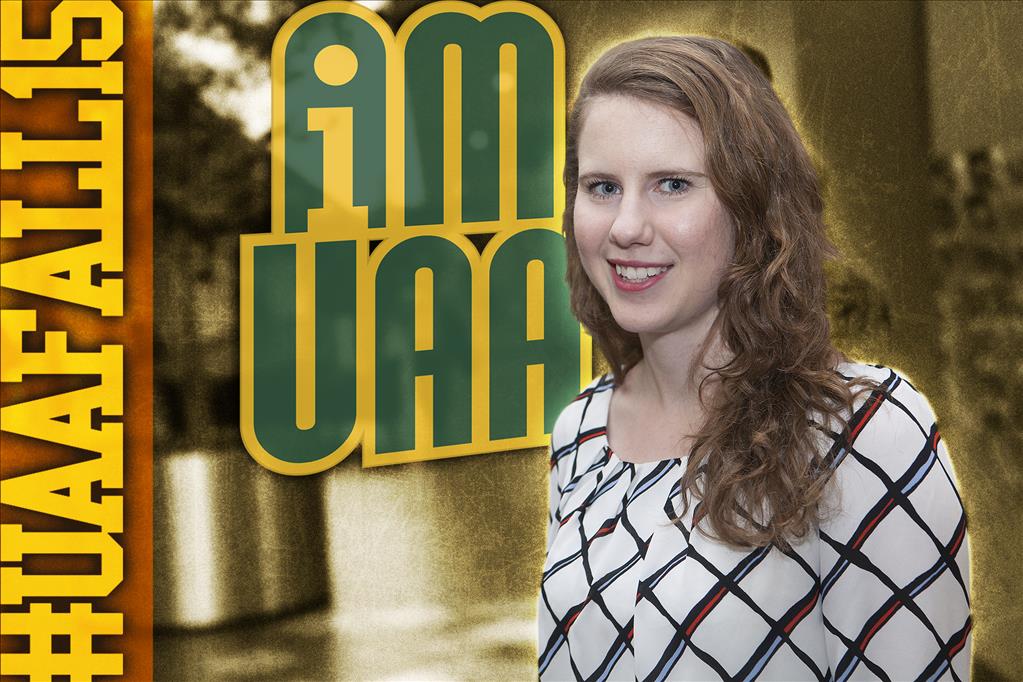Math Emporium: 'This can really change the culture'
by Tracy Kalytiak |

Professor Tom Harman conducts the first session of an ALEKS-based Math 105 class in UAA's new Math Emporium, located in the Learning Resources Center at Sally Monserud Hall. (Photo by Philip Hall/UAA)
Imagine you're returning to school, hoping to launch a new career. You explore the online catalog, but each time you read the description of a promising course, it's followed by this frightening notation: "Prerequisites: Math A105 with a minimum grade of C."
So you enroll, grasping some topics and struggling with others. You emerge with a grade that ensures you'll be taking that math class again, starting from scratch-delaying the day you can complete that prerequisite and accelerate toward your new career.
A UAA math professor, Tom Harman, hopes the newly created Math Emporium at the Learning Resources Center will help. The UAA Community & Technical College manages Math Emporium through its College Preparatory & Developmental Studies Department; the new program is housed in a classroom just a few steps away from the LRC's Math Lab and its tutors.
"[General education requirement] math classes serve as prerequisites for every degree program on campus," Harman said. "Because of this, we see students testing into these classes with a wide range of ability and aptitude. The hard part is always to challenge the strong student while not leaving the struggling student behind."
Opening options
Math Emporium is two things: a dedicated classroom in the LRC (inside Sally Monserud Hall) and a program that splices a traditional lecture-style math class with a web-based assessment tool known as ALEKS (Assessment and LEarning in Knowledge Spaces). ALEKS gauges students' math knowledge and identifies gaps, then constructs an individualized, self-propelled study plan with weekly targets.
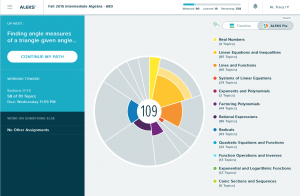
ALEKS is a web-based component of UAA's new Math Emporium instructional program that provides students with weekly goals. Its graphics depict progress and areas that need further study.
Students can view pie charts that depict the skills they have mastered, skills they are learning and skills they will learn. Knowledge checks quiz students, providing an opportunity for them to revisit concepts they haven't grasped and need to practice again.
Often, Harman said, students test into lower-level math because they are returning to school after years working in the field. They may have been really good at math at one time and, given the opportunity, could finish their math sequence more quickly. Struggling students often hit a wall and end up failing the class, sometimes two or three times.
"They have to start from the beginning the following semester," Harman said, "which costs them time and money, not to mention humiliation and an ever-increasing belief that they are incapable of doing math."
Harman says math taught through the Emporium and ALEKS can ultimately help open pathways for the strong student to accelerate, while awarding credit to struggling students for work done.
"They can begin the following semester exactly where they left off," he said, "replacing a failure with a success."
Focusing on what a student needs
This semester, students in four math classes-two Math 055 and two Math 105 courses-became the first to use Math Emporium. Additional sections of the program will be developed and rolled out in stages, through the spring 2017 semester.
The current Math Emporium at UAA is a full semester-based course with three credits. Students may work ahead of the class and even finish early.
Harman, in a plan he wrote for Math Emporium, said assessing every measurable outcome associated with the new program will be a critical part of the process each semester.
"Along with pass rates, a common final exam should be given so that student performance can be compared with students taking non-Emporium sections," he wrote. "Close coordination with [UAA's Office of Institutional Research] is a necessity."
The new Math Emporium classroom can accommodate 34 students, 30 with hard-wired computer stations and four on laptops. A $70,000 Alaska Technical Vocational Education Program grant provided funding for the new effort and CTC Interim Dean Bonnie Nygard also offered support.
"All that is needed to teach using this model is a computer classroom," Harman said. "We do have an expansion plan if and when this takes off."
He says a key difference between Math Emporium and another popular web-based math-instruction program, Khan Academy, is that ALEKS is an adaptive program.
"It constantly assesses students and builds a path of study that focuses a student on what they need to, and are ready to learn," he said.
Harman envisions an evolution of Math Emporium classes, with UAA starting out with the full semester-based course and then gradually transitioning in stages from the traditional mode of math education delivery to a much more flexible-with-accountability model. Questions still need to be debated and resolved: How will credits be bought, standardized in some way, recorded on transcripts and, if need be, transferred from one university to another? Will Math Emporium classes eventually become available for higher-level math classes?
"Moving to a more flexible model will require developing new curriculum, which will need to go through the curriculum review process," Harman said. "This takes time. We also don't want to jump too far ahead into a model that is radically different than what we have already tested. Steps forward need to be deliberate and based on known outcomes. With success, this can really change the culture-not only of how math is delivered, but also how students experience learning math. This also takes time."
'You get the practice you need'
Four ALEKS-supplemented classes are being taught in the Math Emporium. Harman is teaching there, and so are Gail Johnston (Harman's colleague in the Math Emporium project and math chair of the UAA College Preparatory & Developmental Studies Department) and Debra Crawford.
Annalisa Westerholt is a student enrolled in Math 105, a section Harman is teaching.
"So far I like ALEKS," she said. "I like that when it teaches you something, it gets right to the point in showing you how it's done, step by step, before it gives you practice questions, and I like that the number of practice questions you have is totally based on how well you understand the section. If you get three correct in a row, then you can move on and not take up your time in an area you already understand, and if you don't get them right, then you get the practice you need."
Written by Tracy Kalytiak, UAA Office of University Advancement.
 "Math Emporium: 'This can really change the culture'" is licensed under a Creative Commons Attribution-NonCommercial 4.0 International License.
"Math Emporium: 'This can really change the culture'" is licensed under a Creative Commons Attribution-NonCommercial 4.0 International License.










